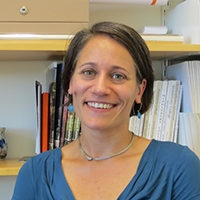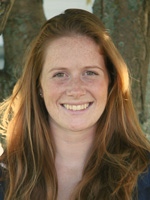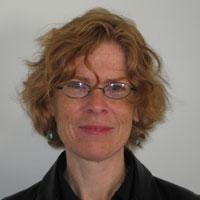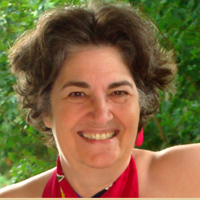Why create “Write Like a Scientist”?
Being able to effectively communicate complex ideas is a critical skill in professional science, whether you are a geologist, an astronomer, or a physician. Evenso, the teaching of writing is often overlooked in science courses. As part of Middlebury’s commitment to preparing students to engage with the world through a wide range of endeavors, we recognized the need to help science students to develop their writing skills and confidence.
Our conviction was reinforced by a 2015 survey of Middlebury science majors that revealed students’ self-described scientific writing proficiency varies greatly across disciplines. It showed that students one science major felt that they could produce professional-sounding scientific writing by the end of their sophomore year, but senior students in the same major didn’t feel like they were any more capable than their younger counterparts; meanwhile, students in another major felt completely incapable of writing professionally until they reached their senior year, when they quickly surpassed their peers in confidence in their scientific writing abilities. These inconsistencies, coupled with overall low ratings of self-reported writing proficiency and confidence, solidified the need for a way to teach scientific writing that spanned disciplines and majors.
“Write like a Scientist” teaching concepts and practical skills for students who study science, whatever their level. We hope faculty in writing-focused science courses will find our writing exercises and explanations useful and choose to adapt and adopt them for their own courses.
How is this site different from other scientific writing resources?
There are many scientific writing guides available to students, but this site aims to not only tell students what to write for a scientific document but also teach them how to write scientifically and why the techniques they learn are usually used in professional scientific writing. We use an approach that focuses on a flexible understanding the purpose of different aspects of writing and the needs of diverse audiences, rather than applying a “how to write” formula.
Who helped create this site?
The idea for this site came from numerous conversations among Middlebury faculty and staff and years in the classroom teaching writing. Prof. Molly Costanza-Robinson began work on the site in collaboration with Biochemistry major Alison Maxwell (’15) as well as members of the college Writing Program.
 Molly Costanza-Robinson is an Associate Professor in the Department of Chemistry and Biochemistry and the Program for Environmental Studies at Middlebury. Costanza-Robinson co-authored the writing textbook Write Like a Chemist (Oxford University Press, 2008) and has taught scientific writing courses and writing-intensive science courses at Middlebury College and elsewhere for more than 15 years. She oversees the development of “Write Like a Scientist”, including its evolving design and content.
Molly Costanza-Robinson is an Associate Professor in the Department of Chemistry and Biochemistry and the Program for Environmental Studies at Middlebury. Costanza-Robinson co-authored the writing textbook Write Like a Chemist (Oxford University Press, 2008) and has taught scientific writing courses and writing-intensive science courses at Middlebury College and elsewhere for more than 15 years. She oversees the development of “Write Like a Scientist”, including its evolving design and content.
 Alison Maxwell is a 2015 Middlebury graduate who majored in Biochemistry and served as a Writing Tutor for her peers in writing-intensive science courses. Maxwell was critical to launching the site in the Fall of 2016, contributing its initial design and content. Maxwell broadened the writing exercises and examples to represent multiple disciplines and provided a critical student perspective on the tone and organization of the site.
Alison Maxwell is a 2015 Middlebury graduate who majored in Biochemistry and served as a Writing Tutor for her peers in writing-intensive science courses. Maxwell was critical to launching the site in the Fall of 2016, contributing its initial design and content. Maxwell broadened the writing exercises and examples to represent multiple disciplines and provided a critical student perspective on the tone and organization of the site.
 Catharine Wright is the Director of the Writing Program and Senior Lecturer in Writing and the Program for Gender, Sexuality, and Feminist Studies at Middlebury.
Catharine Wright is the Director of the Writing Program and Senior Lecturer in Writing and the Program for Gender, Sexuality, and Feminist Studies at Middlebury.
 Mary Ellen Bertollini is the co-Director of the Writing Program and Senior Lecturer at Middlebury.
Mary Ellen Bertollini is the co-Director of the Writing Program and Senior Lecturer at Middlebury.
The aid of Wendy Shook, Bill Koulopoulos, and Hector Vila was also invaluable to the creation of this website. Finally, we would like to acknowledge Write Like a Chemist (Robinson et al. 2008) as a major resource for the content of this site and the Middlebury Center for Teaching, Learning, and Research (CTLR) for its financial support.